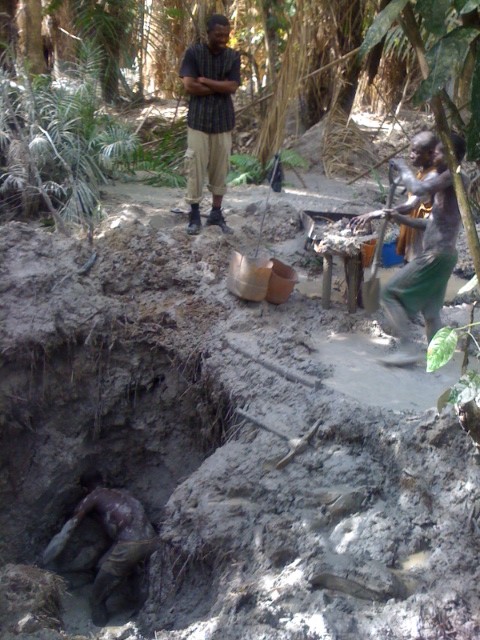“Metal fabrication” and for that matter, the metal manufacturing industry, seem to have very different meanings and specializations, depending what part of the world you are in. A few days ago I was in London, admiring a fleet of brand-new snowplows, which stood brightly at attention, gleaming and winking in the autumn sun at the Heathrow airport. I remember thinking to myself, whoever got that contract is doing all right.
Now I am in Ghana, Africa, and I haven’t seen a single snowplow anywhere. It appears that the large metal machinery here is found mainly in the forests and other mining areas, and that bulldozers are much preferred over snowplows around these parts. But even here, those large machines don’t come cheap, and renting them alone costs around $2500 a day. Again, whoever has THAT contract is doing all right too.
To most Ghanaians, however, for whom a car is out of reach, heavy industrial equipment doesn’t seem to figure much into their daily lives. Instead, their idea of “fabricated metal” consists of rudimentary yet versatile tools that can be (and are) made by local blacksmiths using age-old –and time-honored– technology.
I went to the local market today to shop for a few items, and I found a section of the market that is in fact dedicated solely to manufactured metal goods. Among the things for sale were machetes (that’s Ghanaian for “lawnmower”, “coconut opener”, “nail trimmer” and goodness knows what else), shovels (aka “bulldozers”), knives, blades of all sizes and shiny black chunks of bitumen. I asked what this was used for and it was explained to me that it is melted and used to repair holes in buckets and things of that nature. Bitumen has been in use by humans for a very long time. It was also used by ancient Egyptians in the mummification process.
I’ve noticed that in general, the local technology here is geared primarily towards avoiding a dependency on electricity or fuel, which can be hard to come by in many areas. That’s why the women at the market use a bed of coals to heat their palm oil for the fried plantains they serve up fresh daily. That’s why the local “contract maker” uses a mechanical typewriter and carbon paper to draw up legally binding agreements. And that’s why everyone owns a machete but no one, not even the most affluent, seems to own a lawnmower.
That said, imagine how amazing it would be if they could get their hands on a C. Marshall Fabrication Plasma Burning Machine! I just might be able to talk one of the local blacksmiths into buying one…as long as it comes with a really, really long cord.
– Anja Wulf


